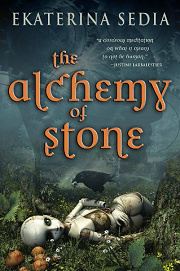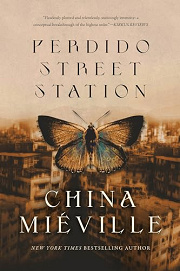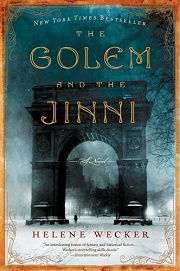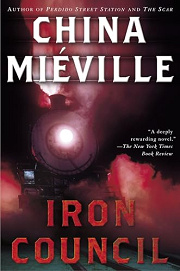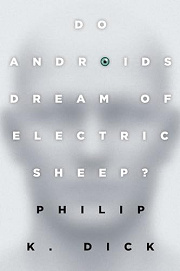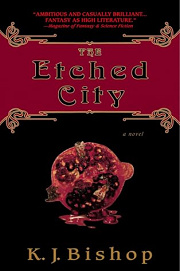Share your thoughts in a quick Shelf Talk!
The Alchemy of Stone by Ekaterina Sedia
In a clockwork city powered by alchemy, an intelligent automaton seeks freedom and a future of her own making. The Alchemy of Stone is a lyrical, steampunk-tinged tale of revolution, identity, and the spark of a heart that shouldn’t exist.
Have you read this book? Share what you liked (or didn’t), and we’ll use your answers to recommend your next favorite read!
Love The Alchemy of Stone but not sure what to read next?
These picks are popular with readers who enjoyed this book. Complete a quick Shelf Talk to get recommendations made just for you! Warning: possible spoilers for The Alchemy of Stone below.
In The Alchemy of Stone, did you enjoy ...
... clockwork-and-smog-choked cityscapes where science and alchemy rub elbows amid labor unrest and uncanny beings?
Perdido Street Station by China Miéville
If the steam-and-stone of Ayona drew you in—the alchemists squaring off with Mechanics while the gargoyles brooded over the city—Miéville's New Crobuzon will feel thrillingly familiar. Like Mattie navigating guild politics and street uprisings, you'll follow Isaac and a tangle of artists, outcasts, and bio-engineers through a sprawling industrial nightmare, where experiments unleash horrors and the city's corrupt powers grind down the vulnerable. It captures that same heady mix of soot-streaked wonder and peril you felt when Mattie tried to carve out a place for herself under Ayona's watchful stone.
... a non-human protagonist wrestling with autonomy, purpose, and belonging in a teeming immigrant city?
The Golem and the Jinni by Helene Wecker
If Mattie's fight to exist on her own terms—despite Loharri's key and the city's claim on her—moved you, you'll love Chava and Ahmad. Like Mattie among Ayona's factions and gargoyles, a golem and a jinni awaken in 1890s New York and must hide what they are while learning who they might become. Their unlikely friendship echoes Mattie's quiet, aching search for selfhood, asking what freedom looks like when your very being was made to serve someone else's design.
... revolutionary city politics, factional power struggles, and the cost of uprising?
Iron Council by China Miéville
If you were gripped by Ayona's shifting alliances—the Mechanics, the Alchemists, the radicals in the streets—and by how Mattie is pulled between idealism and oppression, this tale of insurgency will resonate. As with the protests that sweep past Mattie's workshop and the city's brutal crackdowns, a renegade train becomes the heart of a movement battling New Crobuzon's tyrants. It carries that same urgency of choosing sides, and the bittersweet knowledge that liberation demands sacrifice.
... probing what constitutes personhood when artificial beings are treated as tools?
Do Androids Dream of Electric Sheep? by Philip K. Dick
If Mattie's status as an automaton—capable of love, craft, and sorrow, yet chained to Loharri's key—sparked big questions for you, PKD's classic will hit the same nerve. Replicants here, like Mattie in Ayona, blur the boundary between object and person. The story presses on empathy, memory, and moral culpability with the same philosophical bite you felt when the gargoyles entrusted Mattie with choices that only a "real" someone could make.
... lush, melancholic city noir where beauty and brutality walk hand in hand?
The Etched City by K. J. Bishop
If the somber, elegiac mood of Ayona—the soot, the fragile wonders of alchemy, the tragic tangle between Mattie and Loharri—stayed with you, this will too. In Ashamoil, exiles and killers drift through art, religion, and strange miracles, much like Mattie crosses paths with gargoyles and revolutionaries. The violence is intimate and haunting, the beauty knife-sharp, and the ending carries the same bruising poignancy as Mattie's final choices.
Unlock your personalized book recommendations! Just take a quick Shelf Talk for The Alchemy of Stone by Ekaterina Sedia. It’s only a few questions and takes less than a minute.
